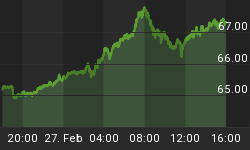It’s going to take some time for investors to come to terms with the latest Facebook Inc. (NASDAQ:FB) shocker and the fact that the company is no longer invincible. When the Cambridge Analytica scandal hit and still users failed to abandon the social media giant in droves, most thought the drama was over.
It wasn’t. It just took time to set it, and the impact didn’t play out as obviously as everyone expected.
It might take a while for the stock to recover from its horrific 20-percent, single-day plunge--the worst in the company’s history.
Facebook has little choice than to adapt to a hostile world where growth will be harder to come by. Specifically, the bad rap it has been receiving regarding abuse of user data privileges seems to have finally started taking a toll on user growth, with its monthly active users in Europe falling during the last quarter for the first time.
At this point, nobody’s sure whether that was a mere blip or is set to become a long-term trend with other regions following suit. That can severely limit the company’s future growth runways and leave FB stock in the dog house.
Little wonder, then, that the social media giant has lately doubled down on efforts to capture one market that has been missing from its glittering résumé—China.
Facebook’s Latest China Entry DOA
For a decade, China has repeatedly blocked FB’s best efforts to crack its massive $750-billion online market. In 2017, it tested the murky Chinese waters once again with a photo-sharing app called Colorful Balloons. The stealth app tried its best to hide its affiliations with Facebook, though its uncanny similarity with Facebook’s Moment app finally gave it away. Related: How Business Owners Can Win Big At Tax Time
WhatsApp was the only Facebook app that enjoyed relative free rein in China. But its end-to-end encryption made it difficult for the authorities to carry out their censorship drive and it was eventually blocked in 2017, too.
None other than Mark Zuckerberg, Facebook’s CEO, took it upon himself to assiduously court the authorities in China, going as far as learning Mandarin. The charm offensive seemed to have worked after reports emerged a few days ago that Facebook had registered a subsidiary in the city of Hangzhou. Facebook said it intended to use the subsidiary to set up an innovation hub.
But that has turned out to be a really short-lived victory.
In a puzzling about-face, the corporate registration was taken down from the Chinese government website and any references to it censored across social media networks in the country. Just like that--no explanations given.
The ruling Chinese Communist Party harbors a deep-seated distrust for any social network that it cannot ultimately control, viewing them as potentially destabilizing. That’s the reason why 16 social networks of American origin including Facebook, Instagram, Twitter, Pinterest and Google+ have been blocked in the country. A couple like LinkedIn that still operate there are self-censored to pacify prying eyes.
The kerfuffle also serves as a clear illustration of just how complicated China’s bureaucracy can be.
Foreign companies seeking to set up base there must navigate a vast network of national, provincial, city and ministerial authorities all vying for influence and power. One part of government might happily support you but your presence could end up ruffling feathers elsewhere.
Additionally, Facebook’s timing could not have been worse, coming at a time when relations between the U.S. and China are at their lowest ebb thanks to ongoing trade wars.
China Export Market
Maybe Facebook will simply resign itself to fate.
Last week, Mark Zuckerberg spoke to Recode’s Kara Swisher in an interview where he conceded that the company was “a long time away from doing anything” in China, especially in the near-term, before adding:
“We need to figure out a solution that is in line with our principles and what we want to do, and in line with the laws there, or else it’s not going to happen. Right now, there isn’t an intersection.”
Related: Twitter In A Tailspin On Disappointing Earnings Report
But maybe Facebook need not get its pants in a twist over China. Few people know this, but China is very much in business with Facebook even as we speak. A study by Pivotal Research analyst Brian Wieser has found that nearly 10 percent of Facebook’s ad revenue comes from the Middle Kingdom. Weiser estimates that marketers in China will spend at least $5 billion on Facebook ads in 2018, making China Facebook’s second-largest ad market after the U.S. Twitter once called it “the China Export Market”.
Wieser and his team were able to decipher that from Facebook’s Q1 2018 earnings report which disclosed the billing addresses of its customers, who are mainly advertisers. A large chunk belongs to APAC, with Weiser estimating that 40 percent of Facebook’s APAC revenue comes from China.
Yesterday’s plunge brought FB’s valuation to a more palatable to 23x earnings, or 21x earnings when you back out the company’s net cash. That’s the lowest ever for the company, and a nice 16-percent discount to Google’s valuation. Despite the latest disappointment, FB still remains a growth machine—only not as turbocharged as before. This might be a good contrarian play.
By Alex Kimani for Safehaven.com
More Top Reads From Safehaven.com
















